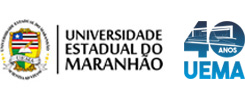Use este identificador para citar ou linkar para este item:
https://repositorio.uema.br/jspui/handle/123456789/4815| Título: | Linguagem e poder: uma análise discursiva da obra 1984 de George Orwell |
| Título(s) alternativo(s): | Language and power: a discursive analysis of George Orwell's 1984 |
| Autor(es): | Silva, Maria Layane de Sousa da |
| Orientador: | Alves, Rondiney de Souza |
| Membro da Banca: | Luz, Edma Ribeiro |
| Membro da Banca: | Leite, Ruth Jonielle Carvalho Novais de Sousa |
| Data do documento: | 2024 |
| Editor: | Universidade Estadual do Maranhão |
| Resumo: | A obra 1984, de George Orwell, retrata uma sociedade distópica, em que o Estado se impõe de maneira totalitária, tanto por meio de situações relacionadas à linguagem e as relações de poder, quanto pelo controle das ações da população, influenciando a vida dos sujeitos. Para tanto, o trabalho possui como objetivos: analisar situações de poder e manipulação pela linguagem descritas na obra 1984; investigar as ocorrências das relações de poder apresentados no romance; examinar como a linguagem do livro é usada para a manutenção do poder exercido pelos sujeitos; identificar como os sujeitos do discurso são moldados por meio dos enunciados apresentados na narrativa. Para o desenvolvimento desta análise, o presente trabalho consiste em uma pesquisa bibliográfica interpretativa de caráter qualitativo acerca da revisão de literatura. A pesquisa foi baseada na análise do discurso de linha francesa, no que foi possível através de autores como Dominique Maingueneau em seu livro Discurso e análise do discurso (2015), buscando analisar as questões epistemológicas, teóricas e metodológicas da Análise do discurso; Michel Foucault, em suas duas obras Arqueologia do Saber ( 2012) e a Ordem do Discurso (2014), em que foi possível observar os elementos de poder e ideologia presentes nas obras; Michel Pêcheux e sua formação ideológica e discursiva por meio de O Discurso (2002) e Eni Orlandi através do livro Análise de Discurso (2015) |
| Resumo: | George Orwell’s 1984 portrays a dystopian society, in which the State imposes itself in a totalitarian way, both through situations related to language and power relations, and by controlling the actions of the population, influencing the lives of the subjects. To this end, the work has the following objectives: to analyze situations of power and manipulation by language described in the work 1984; to investigate the occurrences of the power relations presented in the novel; to examine how the language of the book is used to maintain the power exercised by the subjects; to identify how the subjects of the discourse are molded through the utterances presented in the narrative. For the development of this analysis, the present work consists of a qualitative interpretative bibliographic research on the literature review. The research was based on the analysis of the French line of discourse, which was possible through authors such as Dominique Maingueneau in his book Discourse and Discourse Analysis (2015), seeking to analyze the epistemological, theoretical and methodological issues of Discourse Analysis; Michel Foucault, in his two works Archaeology of Knowledge (2012) and the Order of Discourse (2014), in which the elements of power and ideology present in the works were observed; Michel Pêcheux and his ideological and discursive formation through O Discurso (2002) and Eni Orlandi through the book Análise de Discurso (2015) |
| Palavras-chave: | Linguagem Poder Discurso Language Power Speech |
| Aparece nas coleções: | Curso de Licenciatura em Letras Língua Portuguesa e Literaturas de Língua Portuguesa – Pedreiras UEMA - Monografias |
Arquivos associados a este item:
| Arquivo | Descrição | Tamanho | Formato | |
|---|---|---|---|---|
| TCC - MARIA LAYANE DE SOUSA DA SILVA - LICENCIATURA EM LÍNGUA PORTUGUESA - PEDREIRA UEMA 2024.pdf | PDF A | 341.01 kB | Adobe PDF | Visualizar/Abrir |
Os itens no repositório estão protegidos por copyright, com todos os direitos reservados, salvo quando é indicado o contrário.
